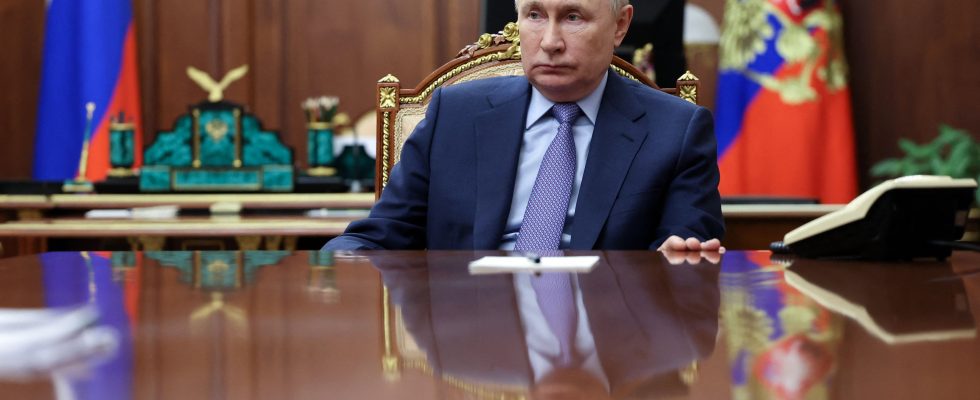PlayStation 5, Nintendo Switch or Xbox. Since Russia’s invasion of Ukraine on February 24, 2022, Russian players have been deprived of the main video game consoles, banned from marketing. In a country where the video game market was worth around $3.4 billion in 2021, and where 69% of players have played a pirated game in 2022, Vladimir Putin knows that the sector is promising. So, the Russian president announced that he wanted to produce his “own home consoles and laptops”, with a first roadmap by June 2024, according to an article in the Russian newspaper Kommersant.
The project, placed in the hands of Mikhail Michoustine, Russian Prime Minister, is part of a more global program to boost the development of video games in the country. The release of a future console, which would benefit from an on-demand service – the possibility of playing games online, for a subscription – is expected for 2026-2027.
“Russia is not competent to produce its own Xbox or PlayStation console, and creating such a product from scratch could take up to ten years,” reacted for his part Kommersant. The economic daily notes among other things the problem of the supply of certain electronic components, the absence of real know-how, but above all the colossal budget of such a project, which would exceed the 100 million dollar mark.
A new method of propaganda
Beyond the economic issues, video games are above all seen by Vladimir Putin as a new method of propaganda. On April 4, the release of Smouta, the first Russian video game made with public funds – 500 million rubles, or 4.6 million euros, for four years of development – was an almost national event. in the country. Featuring 17th century Russia, at a time when the Swedes and Poles threatened the very existence of the Russian state, this “patriotic” video game was the subject of a major launch ceremony in the city of Nizhny Novgorod – where the action of the events takes place – in the presence of the governor of the region, reports the press agency Tass.
If the game received poor feedback due to technical weaknesses and numerous bugs, it is nonetheless the first in a long series: the Institute of Russian Internet Development, the state organization which contributed to financing the project, has invested 1.5 billion rubles since 2020, to produce forty national video games. Like the Yandex site to replace Google or the VK network for Facebook, Russia is gradually seeking to free itself from American and European services and products, to develop its own ecosystem and thus better control the activities of its users.
